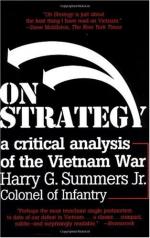|
This section contains 1,856 words (approx. 7 pages at 300 words per page) |

|
A Clockwork Orange: An Analysis of Chapter 21
Summary: Discusses the Anthony Burgess novel, A Clockwork Orange. Determines the extent to which the 21st chapter of A Clockwork Orange is philosophically compatible with the 20 other chapters which preceded it.
It is a part of human nature to retain order and control, preventing one's existence from disarray. The concept of power is a cyclical one as its impact increases over time until a peak
and, if misused, can drive a person to the depths of utter insanity. As the power trip becomes disillusioned, one may seek to exact other means of control in order to satisfy the thirst for control. If the ability to choose is stripped away from the individual by society, the person becomes among the controlled, no longer the oppressor. In this instance, one can contend that society too craves power through conformity under the guise of moral acceptance. The twenty-first chapter of Anthony Burgess' classic novella A Clockwork Orange is philosophically coherent with the twenty chapters which preceded it due to the fact that the theme of power and control is prevalent throughout the...
|
This section contains 1,856 words (approx. 7 pages at 300 words per page) |

|


